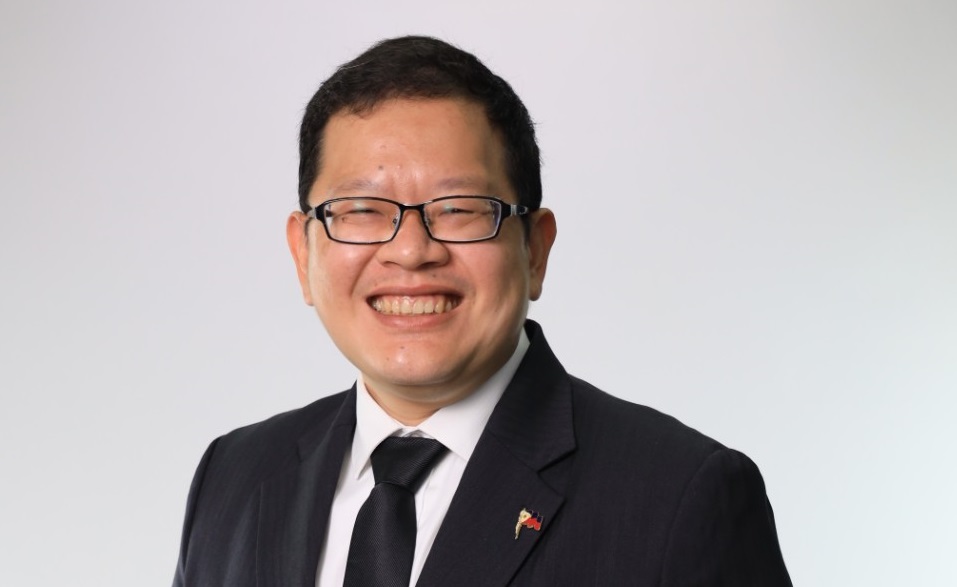While the explosion of fintech firms has brought financial inclusion to a greater number of Filipinos, this has also produced hordes of scammers who have exploited the vulnerabilities inherent in the technology and its users.
This is according to Securities and Exchange Commission (SEC) commissioner Kelvin Lee, who warned the public to be wary of financial offers — whether through online apps or offline transactions — that make unbelievable promises and have incredibly easy requirements and terms.
“The general idea is, if an app makes glowing promises about benefits that seem too good to be true, then it probably is too good to be true,” he said at a recent media huddle.
“For example, if a lending app asks for little to no background checks and documentation, promises 0% interest and other unrealistic benefits, then you should pause and do more due diligence. Check if the app provider is registered with the SEC and do other relevant research on it first,” he stressed.
Lee, a lawyer, said advances in technology has made checking with the SEC about companies and other businesses entities relatively easy with the SEC CheckApp 2.0.
“The app and our website, www.sec.gov.ph, gives users access to the SEC’s company database,” said Lee, noting that the regulatory agency has filed charges in courts that resulted in the conviction of about 70 scammers.
Concurrently sitting as supervising commissioner of the Markets and Securities Regulation Department and as head of the Information and Communications Technology Department, Lee is pushing for the growth financial technology or fintech firms in the country.
Lee played a pivotal role in the establishment of the SEC’s PhiliFintech Innovation Office in 2021. The office focuses on fintech regulation and policy recommendations, positioning the Philippines as a frontrunner in embracing technological advancements while prioritizing investor protection.
He also crafted the SEC’s “delicate balancing act” policy, which enables the agency to foster an environment conducive to fintech growth while upholding its responsibility as a financial regulator to safeguard the interests of investors.
One area of fintech Lee is most supportive of is its role in the growth and development of the sector of MSMEs (micro, small, and medium enterprises).
“Fintech is a faster and more convenient source of capital for MSMEs,” he said. “Thanks to fintech, MSMEs can now access funding that would have been difficult to secure through traditional banking methods. Online lending platforms and crowdfunding portals provide alternative sources of capital for small business and entrepreneurs alike.”
Fintech also makes it easier for individual investors to start investing with small amounts of money through apps and platforms, he said, adding that these provide the benefits of potentially increased savings and wealth accumulation.
But as with any other type and use of technology, fintech is highly vulnerable to security threats for all stakeholders. This is why, according to Lee, the SEC ensures that its officers and staff are kept trained and up-to-date with the latest technology trends.
“Technological innovations do tend to move faster than our laws and regulations can be updated. Still, we do our best to catch up and make the needed revisions to existing rules and policies. After all, that is part of our mandate to protect consumers, businesses, and investors and make sure they benefit from these innovations,” Lee said.
Lee noted that, as part of the SEC’s role as financial regulator, the agency will soon be issuing a memorandum circular for all publicly listed companies to submit reports to the agency regarding the cybersecurity plans, frameworks, and infrastructure that they have in place.
“We will likely start out by asking PLCs (personal loan companies) to do this on a comply or explain basis, perhaps as part of a transition phase,” he said.
“Following that, the SEC will likely be making the submission of such reports mandatory. This is necessary to protect all stakeholders including consumers, businesses, investors, and even the government against cybersecurity threats.”
Lee was recently involved as a pioneer cohort at the University of Cambridge’s Fintech and Regulatory Innovation Program, which influenced his drive for a meticulous and balanced policy approach to fintech regulation.
He was also a recipient of this year’s Asia Pacific Stevies Awards, a prestigious business award, where he won the Gold Prize in the “Thought Leader of the Year” category. He triumphed over other awardees from the Philippines, Australia, Indonesia, and India.
According to the Stevies jurors, Lee’s accomplishments stand as a testament to his dedication and expertise in advancing the fintech sector and promoting a secure and investor-friendly environment.
Aside from his work in the Philippines, Lee’s dedication to advancing fintech has taken him to Hong Kong, Singapore, London, and Cambridge, where he has shared his expertise and contributed to shaping the global fintech landscape.
Other platforms where he has shared his knowledge include events organized by the University of Cambridge, the Asian Institute of Management, the American Chamber of Commerce of the Philippines, the Ministry of Economy and Finance of Cambodia, the Fintech Alliance, and the World Economic Forum.




